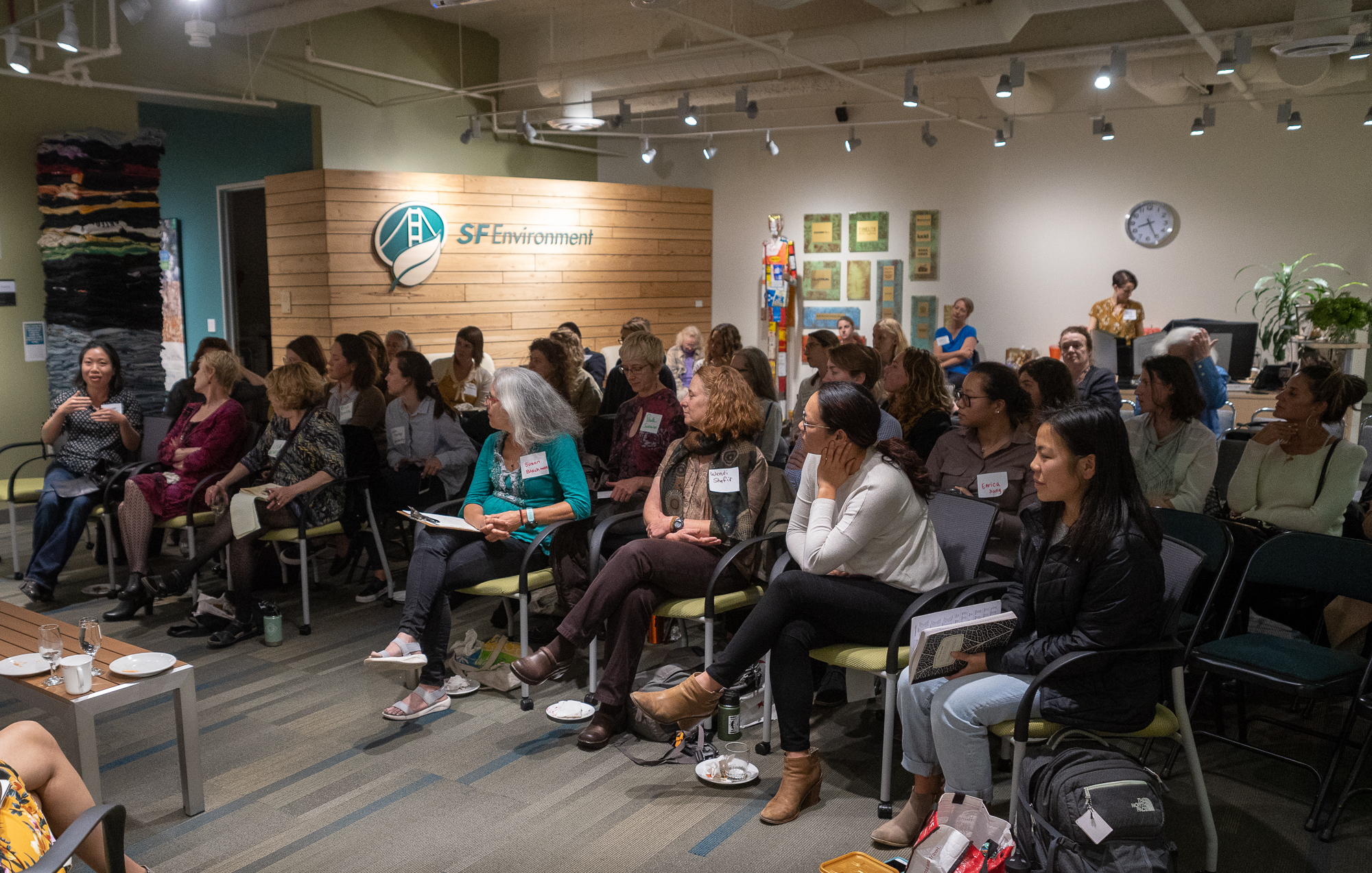By Paula Swiatkowski, WEN Member
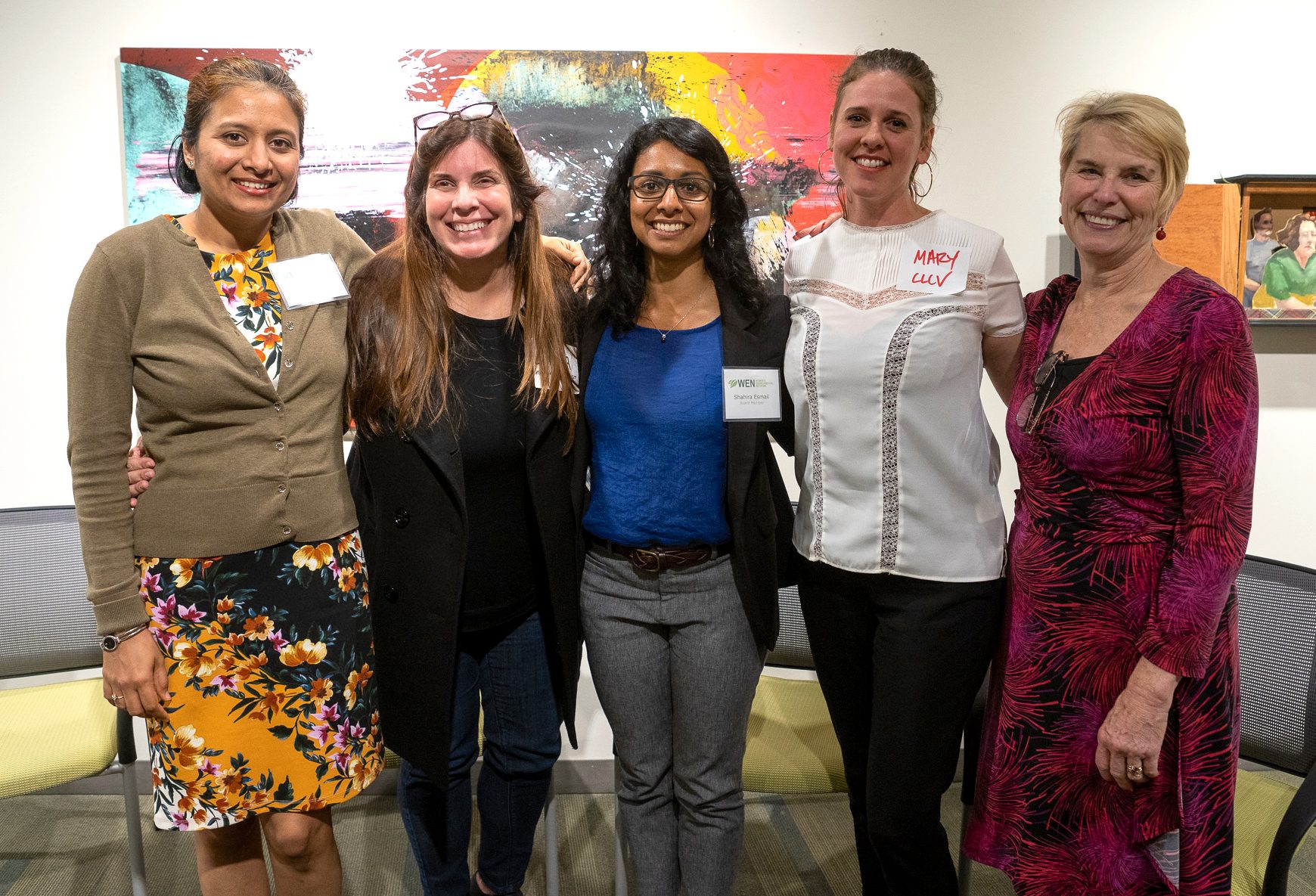
Last month, California Governor Jerry Brown hosted the Global Climate Action Summit (GCAS) in San Francisco. Thousands of believers in the urgent need to address climate change traveled from near and far to participate in official GCAS sessions (open only to the credentialed, but live-streamed for all), hundreds of official “affiliate” events, and even more side events.
With so much to choose from, participants planned their daily schedules the way some people put together fantasy sports teams—very strategically. I know this because I was calculating how quickly I could speed walk between events of interest. Information overload alert!
That’s why I welcomed WEN’s GCAS debrief at San Francisco Department of the Environment on September 24. WEN Membership Chair and SF Environment staffer Anya Deepak moderated a panel of four dynamic women with a broad range of expertise: Mary Creasman, Lisa Craig Gautier, Shahira Esmail, and Laura Stachel. Deepak kicked us off by sharing what she noted as Gov. Brown’s inspiration for the Summit – his impression that ‘non-state actors’ (i.e. regions, cities, states, businesses, investors and civil society) lacked a voice at the 2015 UN COP 21 summit , which led to the Paris Agreement among nearly 200 nations to take concrete steps to limit global warming.
Recognizing that the Paris Agreement had no chance of success if action occurred only at the national level, Brown hatched a plan to gather subnational stakeholders in San Francisco. Summit planning accelerated as Brown pushed back against the Trump administration’s decision to pull out of the Paris Agreement and its actions to gut climate and environmental programs.
After Deepak introduced the panelists, they engaged in an honest and richly observed discussion on their impressions of the summit, along with GCAS takeaways. At the outset, panelist Mary Creasman, CEO at California League of Conservation Voters, celebrated California’s leadership on climate change action, including hosting GCAS, but noted the flip side, saying, “The problem with leading the way is that you’re also the first to make mistakes.”
The conversation was complex; the following organizes it into what I observed to be key themes.
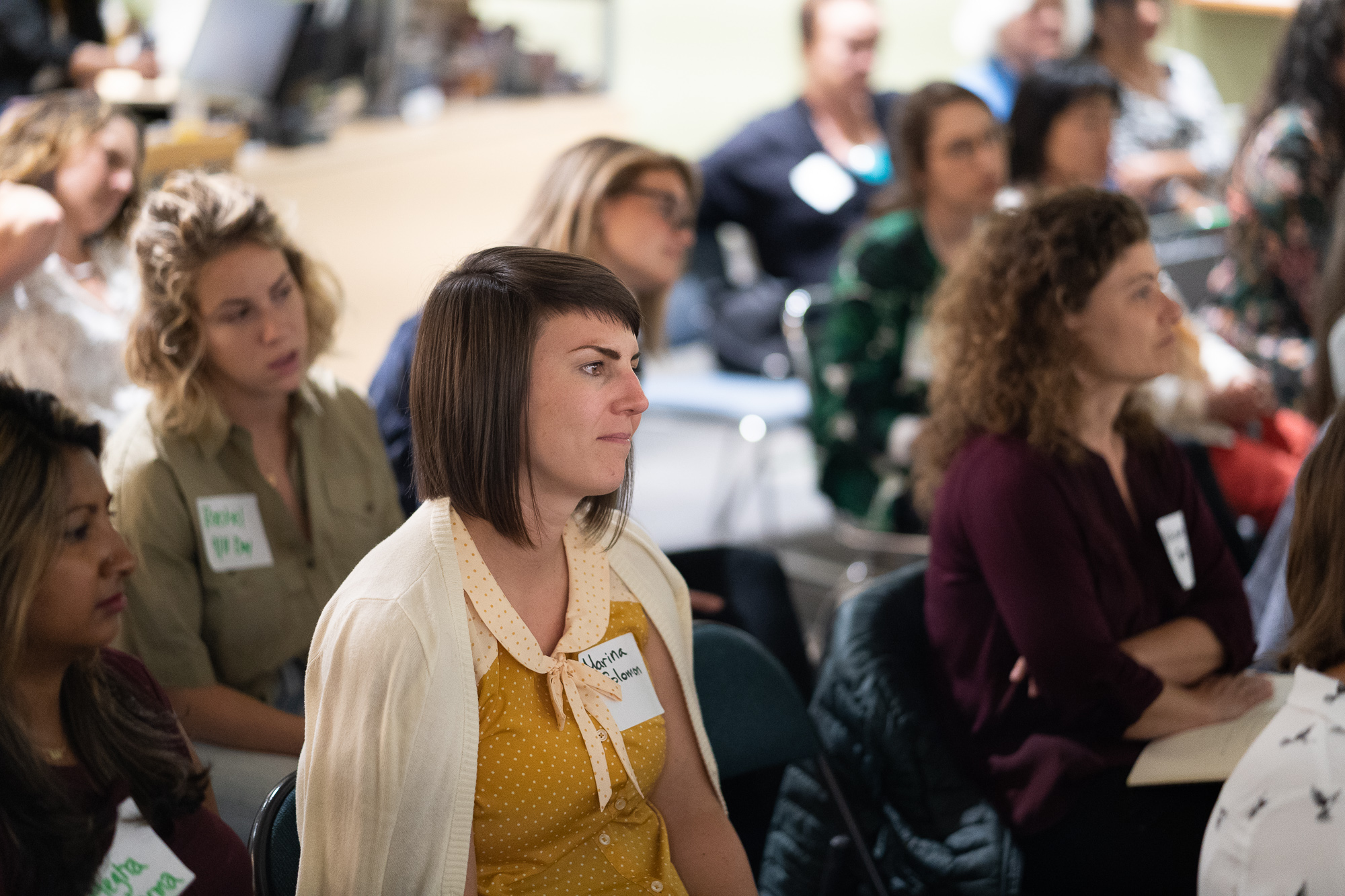
Perspectives on Protests & Inclusion
Though GCAS was a major international event, it was the protests by indigenous peoples, people of color, and climate and environmental justice organizations that often drew headlines.
Creasman felt that the protests stemmed from a lack of meaningful inclusion of these communities, and observed what she saw as a “Why us? We’re doing the right thing!” reaction from GCAS organizers. Creasman asserted that when a group feels left out of the solution-finding process, they functionally are outside it, no matter how good the intentions of others may be.
Lisa Craig Gautier imagined harnessing and organizing the protesters’ energy, so that it “gives us something positive to go towards instead of something to push against; then they’d move the needle.”
Craig Gautier is President of Matter of Trust, a 20-year-old non-profit organization whose mission “concentrates on the positive, ecological progress, and the environment we do want.” She attended COP 21 in Paris and found it elitist if one wasn’t ticketed for official events. By comparison she felt events at GCAS were an improvement, but noted their far-flung locations made them difficult to attend. Due to this and the sheer number of them, she expressed a wish that the content of them could be condensed, so more people could get the bigger picture of summit content.
Shahira Esmail is a climate change and sustainability advisor at Climate Smart, and is WEN’s Policies and Procedures Chair. She specializes in carbon markets associated with clean tech, forestry and agriculture. She felt frustrated to see more women moderating panels than speaking on them as subject matter experts.
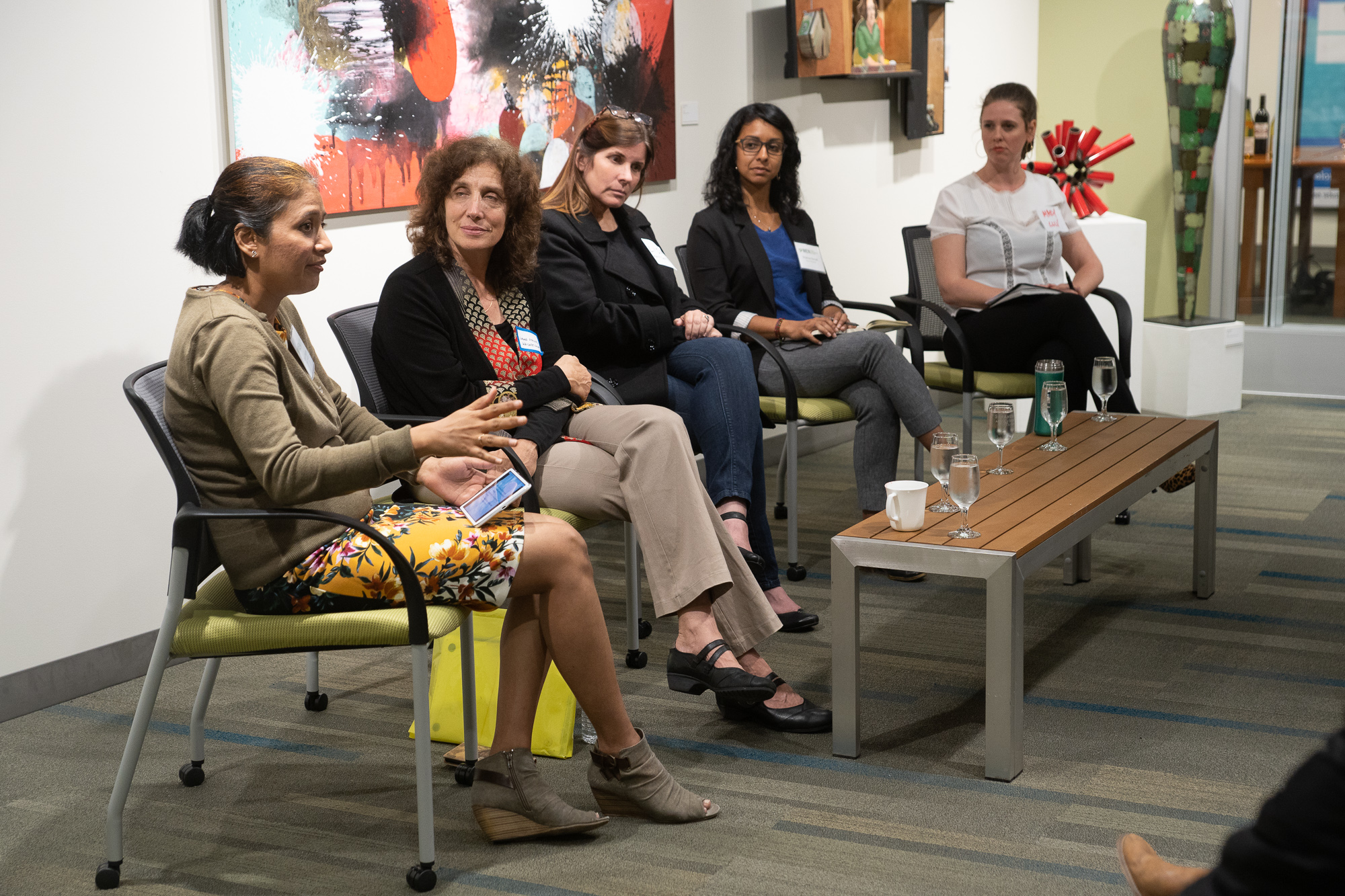
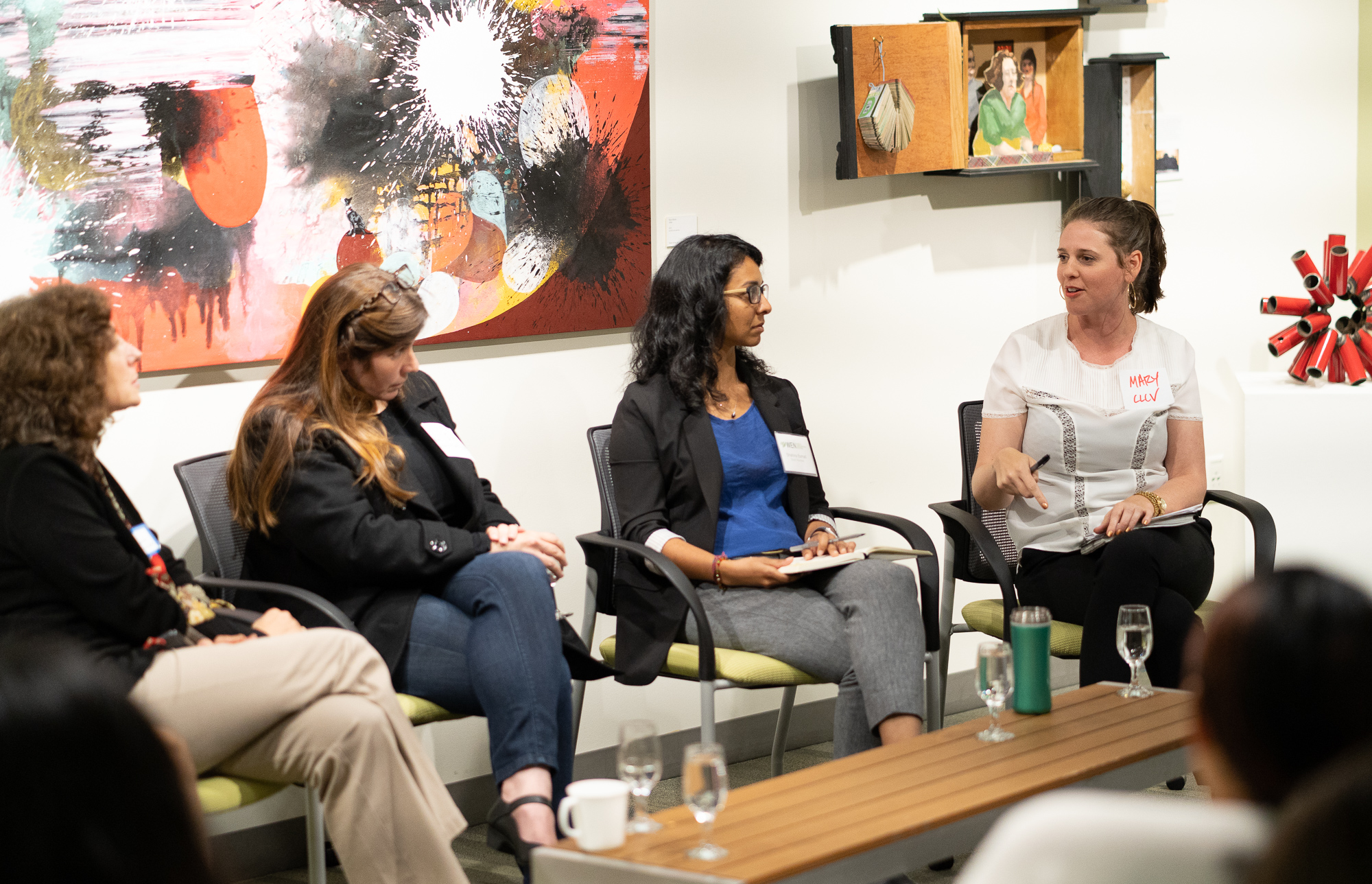
Comments on Commitments
One of the stipulations for entities to participate in GCAS was that they were required to announce a formalized climate change mitigation commitment.
Esmail applauded these commitments, but felt concern over a lack of roadmaps for success. However, she did think the summit was “ambitious in bringing different jurisdictions together to share lessons learned.”
Laura Stachel is an ob-gyn and the Co-Founder & Executive Director of We Care Solar, which aims to significantly reduce maternal mortality in developing nations. She said hearing the flood of commitments announced at GCAS “felt like we were re-arranging deck chairs on the Titanic”—that is, incremental changes won’t be enough to meet goals. She expressed frustration over what she perceived as making changes because they’re good for the business bottom line, rather than because it’s the right thing to do before it’s too late.
Reasons for Hope
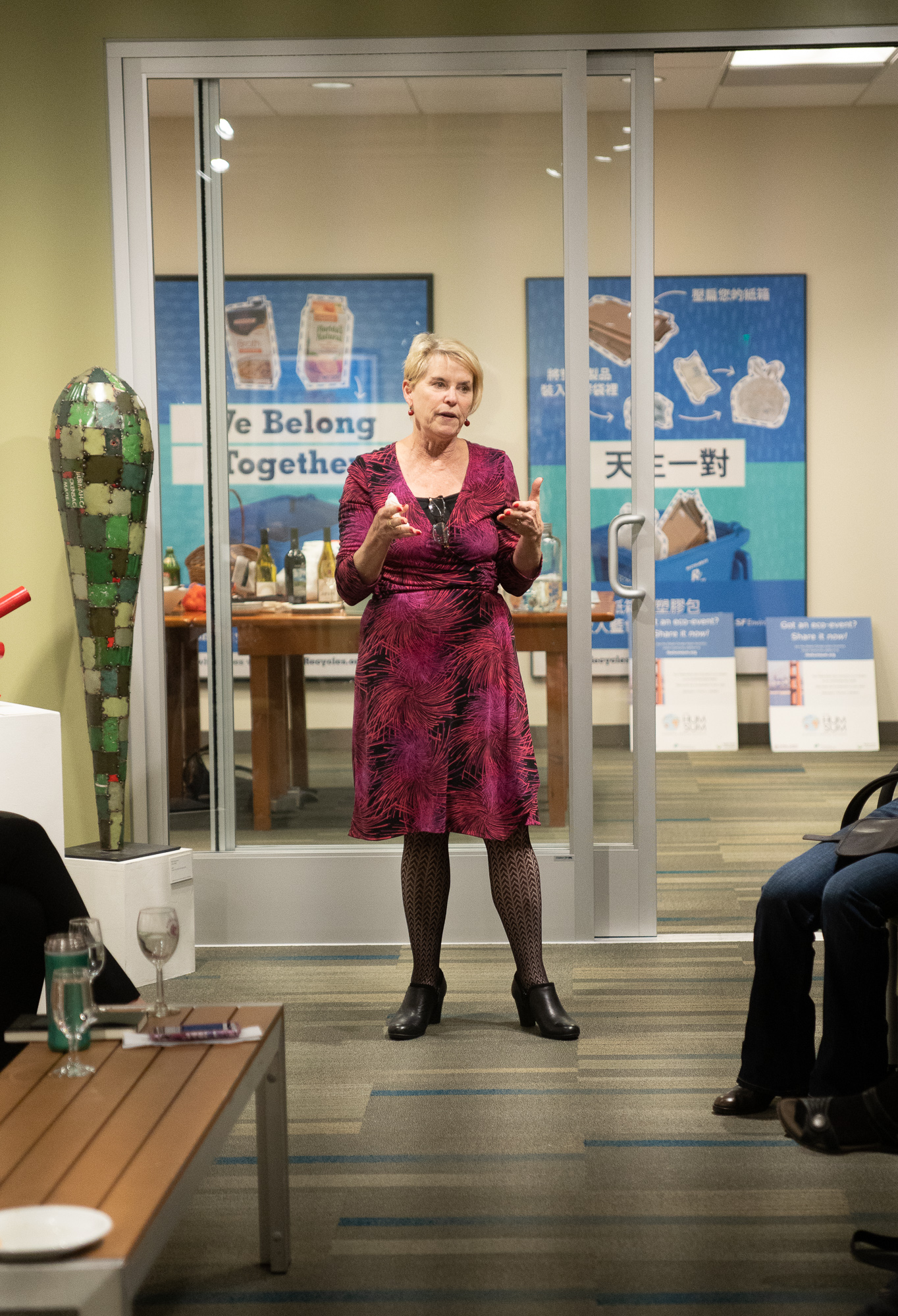 The panelists also discussed the ways in which GCAS gave them hope.
The panelists also discussed the ways in which GCAS gave them hope.
Esmail attended “Forests, Food, and Lands Day” and was pleased it included discussion by representatives of indigenous communities about their traditional ecological knowledge and forest and land management practices—such as the use of controlled fire—that restore and protect natural resources. She was energized by the idea of combining science and traditional practices to form better climate policy.
Stachel found hope in the potential for non-environmental problems to inspire climate-positive solutions, offering her own work as an example. Volunteering in Nigeria, she was “literally and figuratively powerless” when the lights cut out during a difficult childbirth. Her response was to create the Solar Suitcase, a game-changer which to date helps power over 3,000 health centers across the globe. “If you’re interested in health care in the developing world, don’t forget about the need for sustainable energy,” she advised.
Craig Gautier said she was pleased that there wasn’t much personal emphasis on the current U.S. President or his climate policies, but that speakers instead focused on positive steps rather than angry diatribe.
Creasman saw hope in the upcoming midterm elections, but emphasized the importance of engaging voters, saying, “Just because people are showing up to marches doesn’t mean they’ll show up at the polls. Who is in office matters [on climate change] going forward, or it won’t be enough.”
Deepak also drew her SF Environment colleague Shawn Rosenmoss into the conversation. Rosenmoss said she felt “very hopeful because the technology exists to address the challenges.” She also observed a fresh diversity in GCAS events, where groups such as artists, people of faith, and environmental justice advocates drew together in ways they haven’t in the past.
Women Must Lead on Climate
I found some of the most absorbing discussion to be around the critical role of women in the task at hand, and our panelists were emphatic in their agreement that women must be front and center.
Creasman noted that women are uniquely positioned to lead and solve problems in a collaborative way, and Craig Gautier was pleased to see more influential women, like Lisa Jackson of Apple, talking about finance.
The panelists called out the GCAS structure as not reflecting the strengths of women. Esmail wondered why so-called ‘women’s events’ were often segregated, creating too many silos. “There was too much isolation,” she said. “We need more of a systems approach when it’s all interconnected.”
Craig Gautier explained what she perceived to be the different ways women and men think: She found the five defined “challenge areas” around which GCAS was structured to be more typical of how men approach an issue, i.e. via categorization. She drew a distinction between that and the tendency of women to think more holistically, in the process opening new doors of inquiry and “reaching out beyond the choir to make a shift.” She’d like to see women push to adopt this approach at future gatherings. “Don’t try to fit into the male structure of the event,” she urged.
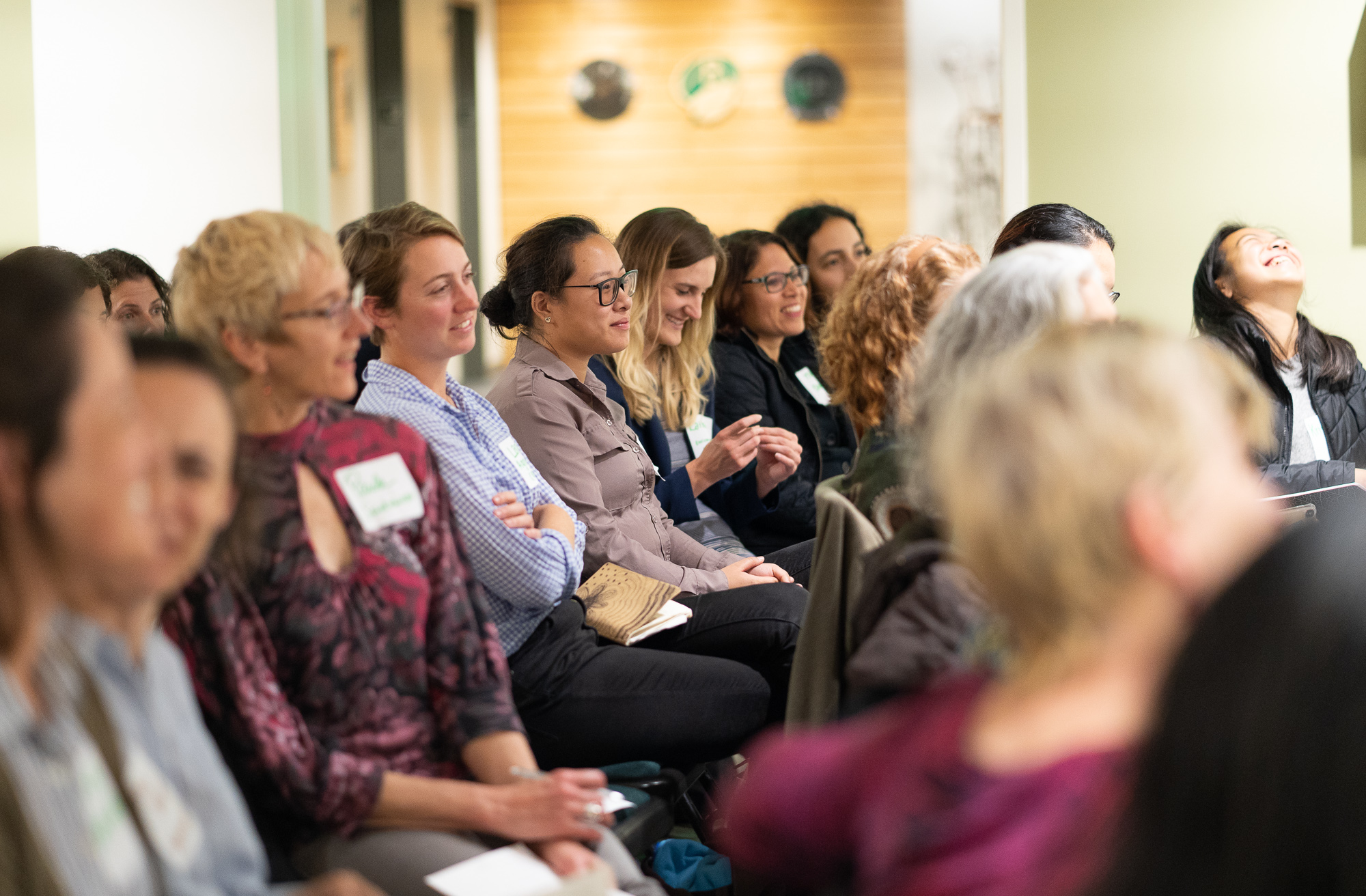
What Needs to Happen Now?
Going forward, the panelists shared thoughts about improvements they want to effect.
Creasman wants to tackle fixing what she views as a broken system of government. “How do we change the way change is made?” she asked. She suggested such tools as an app that allows voters to reach their government representatives and voice their concerns directly.
Stachel stressed the need to involve young people, who were represented at this event by Kristin Tam, a former SF Youth Commissioner and current President of Lowell High’s Eco Club, who sees her role as spreading awareness among her generation and calling them to action.
Esmail noted that power rests at the local level, suggesting we engage in issues we see in front of us. “‘Climate change’ is too big and amorphous, and psychologically people don’t want to face it,” she said, urging us instead to “change it in your realm.”
Craig Gautier aptly summed it up the ethos of the panel by referencing San Francisco’s U.S. Congresswoman, saying, “I really loved what Nancy Pelosi said at GCAS – think globally, organize locally, act personally.”
For me the takeaway wasn’t only the panelists’ unique perspectives on the Summit. The evening also reinforced my belief that each of us has the power and responsibility to create positive change around the threats facing our planet. I propose that we continue to ask ourselves this question: “What’s my contribution going to be today?”
